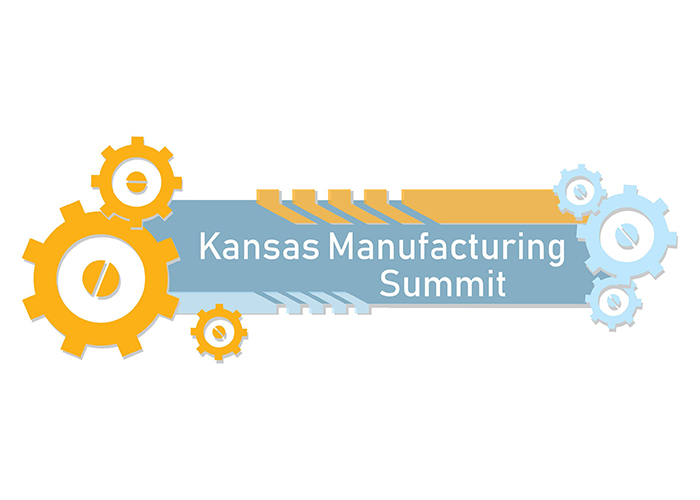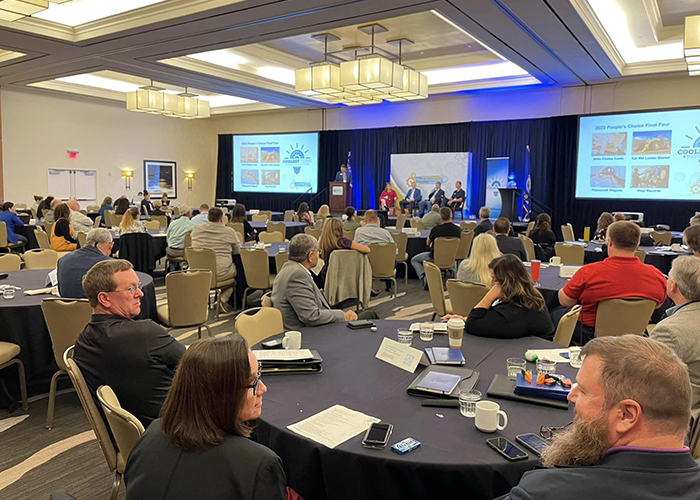homepage | Three Key Insights From the Kansas Manufacturing Summit
November 3, 2023
November 3, 2023

UMKC TalentLink Business Development Director Candice Haines shares three key insights from the recent 2023 Kansas Manufacturing Summit.
The Kansas Manufacturing Summit brought together manufacturers, educators, and community leaders to discuss common issues and the future of manufacturing.
Haines attended the conference to learn about industry innovations, current trends, and needs in Kansas manufacturing. Those industry-based needs are also relevant to Kansas City and the bi-state region.
UMKC TalentLink recognizes the importance of manufacturing as a significant contributor to the local and regional economy. The Summit provided an opportunity to listen, learn, and assess company needs. Looking ahead to 2024, we’re focused on how our professional development offerings can serve those employers.

Manufacturing is a major economic driver in Kansas. The 2022 Kansas Manufacturing Industry survey reports that 93 percent of manufacturers have operated in the state for more than five years.
Among all Kansas manufacturers surveyed, 20 percent generate annual sales from $3-14.9 million. At the next level, 39 percent produce $15-74.9 million in annual sales.
Many of these Kansas manufacturers fall in the small to midsize range in terms of employees. Findings show that 33 percent employ between 25-99 workers and 36 percent employ between 100-499 workers.
UMKC TalentLink’s training and development supports the needs of manufacturers, particularly in this company size range.
“I met manufacturers at the Summit who are poised for continued growth. However, they lack the number of skilled workers necessary to fit their needs,” Haines said. “We offer online skills-based training that can address this pain point.”
UMKC TalentLink’s partnership with WorkForge provides online manufacturing skills training in multiple industries that align with leading Kansas manufacturers. Training programs include robotics technician, aerospace assembly, and aerospace quality technician. Additional programs include welding, CNC fabrication, CNC lathe operator, food safety production, industrial maintenance technician, and introduction to entry-level manufacturing.

Learn more about how UMKC TalentLink and WorkForge can partner with your company to find training and development solutions that address your workforce challenges.